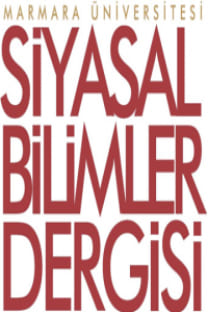De Maistre İslami Köktenci Olabilir miydi? Joseph de Maistre ve Günümüz İslami Köktenci Hareketlerin Söylemleri Arasındaki Paralellikler
Bu makale, Joseph de Maistre’nin yazıları ile IŞİD ve El-Kaide tarafından savunulan dünya görüşü arasındaki, özellikle mutlak otoritenin başlıca rolü, modern rasyonalitenin genel olarak reddedilmesi ve arzu edilen amaçlara ulaşmada şiddet kullanımının açıkça kabul edilmesi konularında ne kadar paralellik bulunduğunu inceleyen bir karşılaştırmalı siyasi kuram çalışmasıdır. Makalenin son bölümünde Maistre ve IŞİD/El-Kaide tarafından kullanılan retoriğin genel ton ve stilindeki benzerlikler irdelenecektir. Bu makale, doktrinler arasındaki farklılıklara rağmen Maistre ve yukarıda bahsedilen gruplar tarafından kullanılan Schmittçi dilin benzer olduğunu göstermektedir. Bu makale, ideolojik yönelimlerinden bağımsız olarak tüm dini aşırılıkçı hareketlerin sahip olduğu ortak bir dilin olduğunu gösteren literatür bünyesinde yer alan özgün bir karşılaştırmalı vaka çalışmasıdır.
Anahtar Kelimeler:
Joseph de Maistre, Dini Aşırılık, IŞİD, El Kaide, Terörizm, Karşılaştırmalı Siyasi Kuram
The Islamic Fundamentalist that Could Have Been? Parallels between the Rhetoric of Joseph de Maistre and Contemporary Islamic Fundamentalist Movements
This paper is a work of comparative political theory and looks at how much of Joseph de Maistre’s writings parallel the worldview held by ISIS and Al Qaeda, specifically in regard to the central role of absolute authority, the general rejection of modern rationalism, and the openly accepted use of violence in order to attain their desired ends. The last section of this paper will look at similarities between the general tone and style of rhetoric utilized by Maistre and ISIS/al Qaeda. This paper shows that the Schmittian language used by Maistre and the aforementioned groups is similar despite their outward doctrinal differences. This paper is an original comparative case study that fits within the emerging body of literature that shows that there is a common underlying language that can be ascribed to all religious extremist movements, regardless of their actual ideological orientation.
Keywords:
Joseph de Maistre, Religious Extremism, ISIS, Al Qaeda, Terrorism, Comparative Political Theory,
___
- Atkinson, M. and Donaghy, R. (2015) “Crime and Punishment: Islamic State vs. Saudi Arabia”, Middle East Eye [online],
- http://www.middleeasteye.net/news/crime-and-punishmentislamic-state-vs-saudi-arabia-1588245666, [accessed 9.12.2015].
- Armenteros, C. (2010) “Epilogue: the forced inhabitant of history”, in Lebrun and Armenteros (eds.), TheNew enfant du siècle: Joseph de Maistre as a Writer, St. Andrews, UK: St. Andrews Studies in French History and Culture, 99-116.
- Baker, A.H. (2011) Extremists in Our Midst: Confronting Terror. New York: Palgrave Macmillan.
- Baudelaire, C. (1966) Correspondances. Vol. 1, Claude Pichois (ed.). Paris: Gallimard.
- Bergen, P. (2006) The Osama Bin Laden I Knew: An Oral History of al Qaeda’s Leader, New York: Free Press.
- Bradley, O. (2001) A Modern Maistre: The Social and Political Thought of Joseph de Maistre. Lincoln, NE: University of Nebraska Press
- Yayın Aralığı: Yılda 2 Sayı
- Başlangıç: 2013
- Yayıncı: Marmara Üniversitesi
Sayıdaki Diğer Makaleler
Varoşun Üç Hali :"İç Varoş", "Parçalanmış Varoş" ve "Bütünleşik Varoş"
Varoşun Üç Hali : “İç Varoş”, “Parçalanmış Varoş” ve “Bütünleşik Varoş”
Hayek ve Friedman’ın Devlet Anlayışı
60 Yıl Sonra Erdemli: Yerleşik Siyasetin Göçebelik Habitusu
Rusya’da Kilise-Devlet İlişkilerinde “Asimetrik Senfoni” Modeli: Ukrayna Krizi Örneği
Intellectual Property Monopolies: Towards a New Mercantilism?
Topyekûn Savaş Uygulamasının Tarihsel Gelişimi
Taksim Gezı Parkı Olayları ve Bir Muhalefet Ögesi Olarak Aleviler
